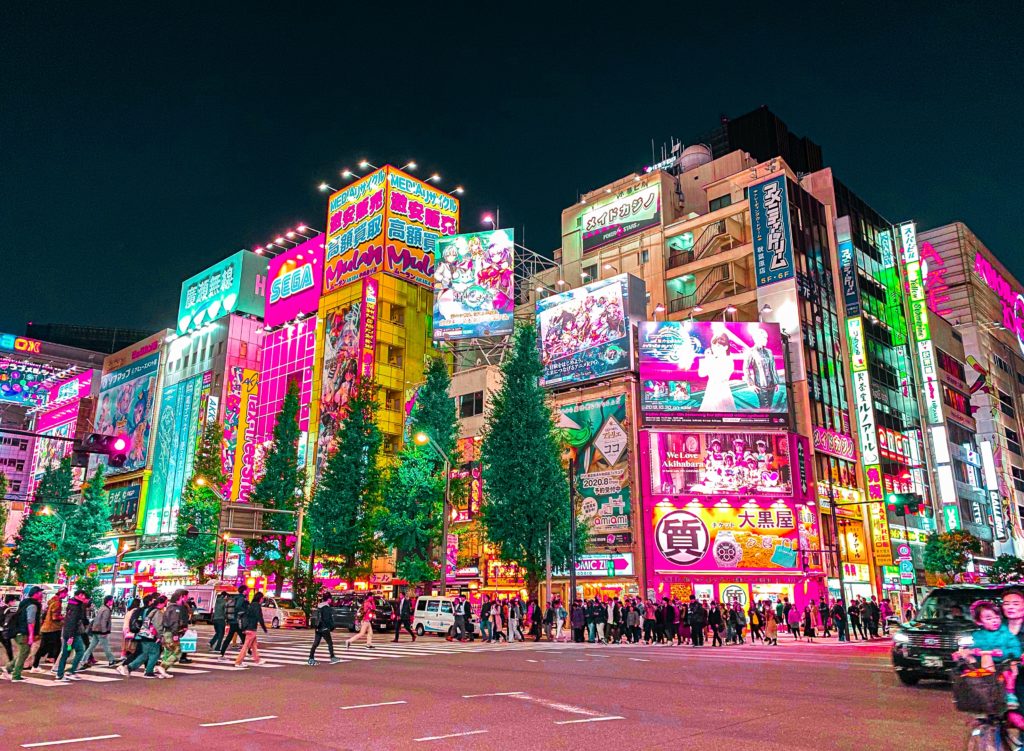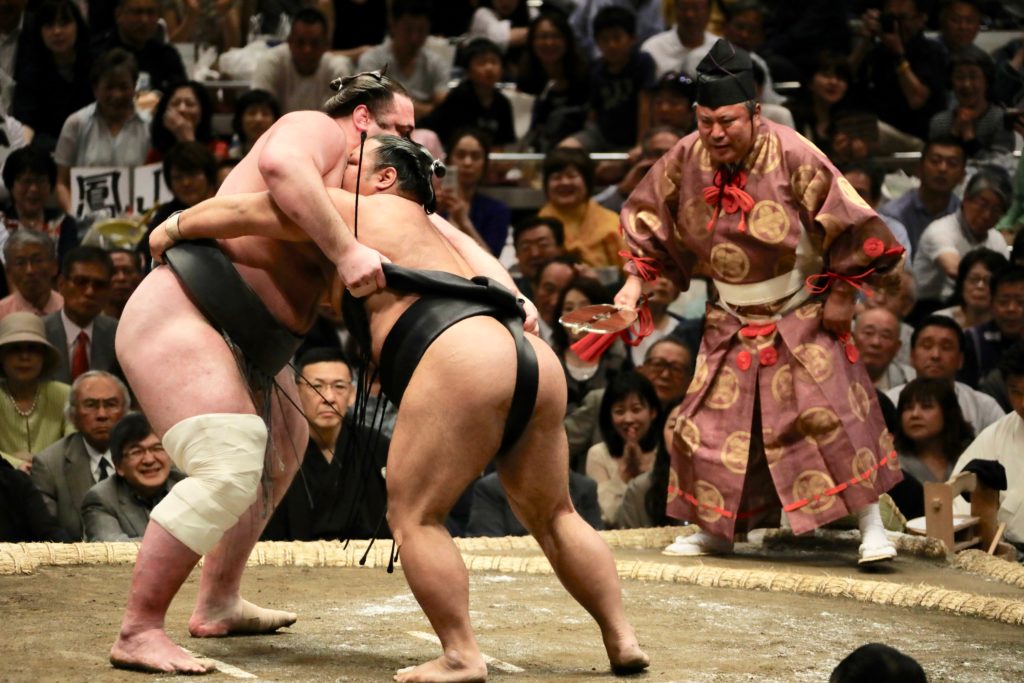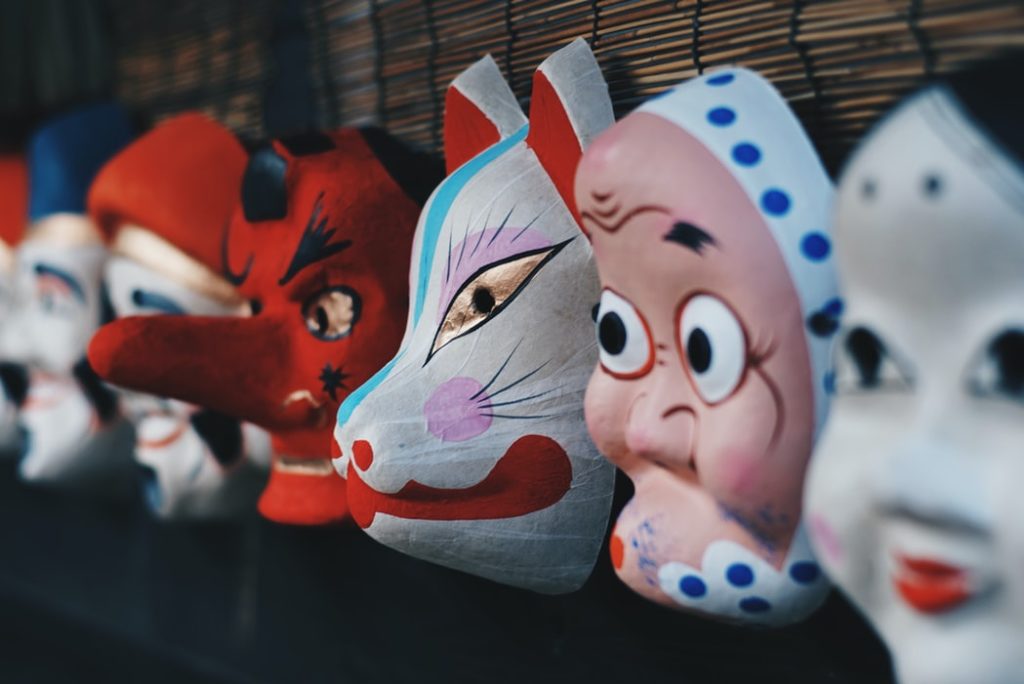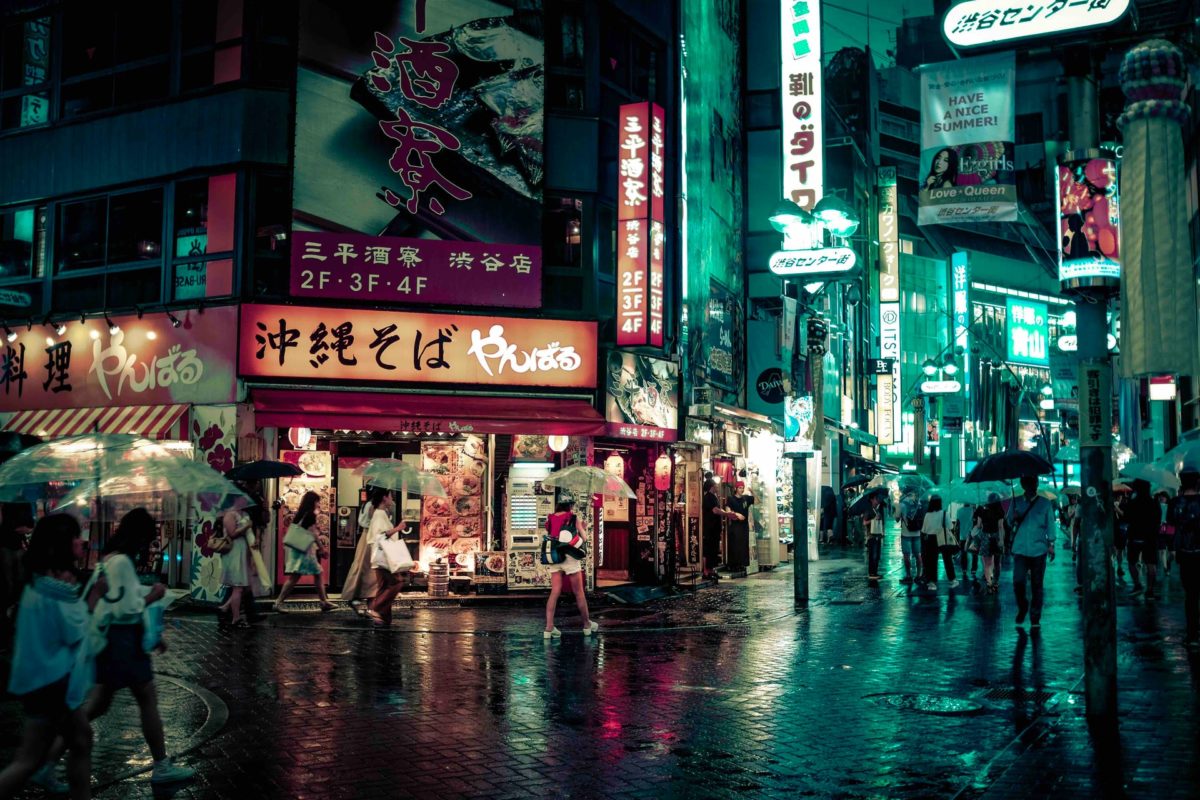“Japan boom:” that’s what the Japanese call the explosion of foreign interest in their country. It’s as strong now as it was when I first went there almost 20 years ago, especially among the young.
Yet Western youth has fallen in love with a coarsely gaudy Japan. Too many join the hordes at Harajuku foraging on cosplay safaris for the latest One Piece manga trinkets, like prospectors for gold. Or go to Akihabara: that cyberpunk purgatory haunted by lonely, lost souls and Goth-Lolita French maids; a melange of geek chic and coy sexual ambiguity which has become a cipher for the nation.

You can see why they find Japan’s most childish features so attractive. In some ways, Japan is like a giant fairy playground, a Never-Never Land where growing up can be indefinitely postponed. For women lifestyle options can feel reduced to the choice of becoming a living doll or a Goth princess: the question of whether to get a tattoo of a rainbow unicorn or a kooky pentagram.
None of this is why I went to Japan. It was the Lost Japan of Alex Kerr that first drew me: the Japan of calligraphy and Zazen, shakuhachi and shamisen, Bushido and Shinto shrines. What has kept me going back every year since is what over a decade of marriage into a Japanese family has taught me: What makes Japan my favourite country in the world is precisely the unfashionable virtues that Westerners prefer to deride or ignore.
There’s more to Japan than some oriental buffet of buzzwords for tired Western tongues. So forget ikigai. Trash your manga. Burn your kawaii cosplay kit. Spit out the umami. Stop talking to your clothes. It’s time to get wabi-savvy, with this series on the right reasons to love Japan.
Reason 1: Japan is monocultural
Now, I’m no advocate of the convoys of black vans you see occasionally paraded through the streets emblazoned with military Rising Sun flags and blaring out wartime music from their rooftop speakers. Nor do I have any imminent plans to prostrate myself before the war criminals enshrined in Yasukuni Jinja. I am, after all, someone who has lived in Japan as an immigrant. But as an immigrant, which is to say, as a guest, I expect to conform to Japanese mores.
There may be more than the odd frustration with Japanese ways of communication and decision-making. I may not much like navigating the baroque waste disposal and recycling system. There are more serious objections from second- or third-generation Chinese and Koreans who are not given Japanese citizenship, and I’ve never liked hearing certain Japanese insinuations about the criminality of other Asians. I didn’t much like having my own bag checked when I left a DVD shop in case I’d stolen something, because ‘that’s what foreigners are like’.
But, despite the ignorance, there’s something to the concept of monoculture; though the line between social harmony and crushing conformity is a fine one. In the interest of preserving the former, Japan veers closer towards the latter than Western countries do—in some respects. The Japanese government has no legal power, for instance, to force the closure of private businesses or prevent freedom of association in private homes. It’s not China. There is a healthy respect for private life and property. But this is bolstered by a cultural, rather than merely legal, enforcement of properly Japanese behaviour.
The very notion of national characteristics is laughed off in much of the West, where we adhere to the notion that there are no absolute cultural values, and yet that our way of seeing the world is in the end the only one permissible. Japan is ambivalent towards this view. The post-war US occupation has certainly given the Japanese a respect for the West, but it remains somewhat the grudging respect of the conquered.
Cultural wrestling
In the early days, to bolster national self-respect, public martial arts matches were fixed so that Western contenders would lose. Nowadays, if you sit watching the sumo over a hot sake with some of the old boys, you won’t find them exactly delighted that the noble game is dominated by Mongolians and Turks. Better than Americans, I suppose, who dominate so much of the rest of life. The same old boys will happily keep sitting to cheer on their favourite baseball team, wearing the eponymous utilitarian headgear of that game, and perhaps move on from the sake to Jim Beam. But when they raise the glass, they will still expect you to join in the toast and agree: Nippon ichiban, “Japan is Number One!”

The deputy prime minister, Aso Taro, recently raised some leftist hackles when he casually suggested that the relatively low number of covid deaths in Japan should be attributed to “the quality of the Japanese people.” There is a whole field of often rather spurious pop philosophy called Nihonjinron, the study of the Japanese, which helps magazine and paperback sales no end. It’s easy to find laughable examples: the Japanese cannot eat foreign meat because their intestines are different, the Japanese developed mobile phones because their thumbs are different, Japanese is such a difficult language because only the Japanese are clever enough to speak it, or—one of the few which is polite enough to mention to foreigners, but leaves us bemused—only Japan has four seasons.
There can be, and have been, darker ones too, such as the establishment of Shinto emperor-worship as an inalienable aspect of Japanese culture and “non-religious,” so that it could be enforced in the lead up to the war without impinging on religious freedoms.
But the folly of judging a culture only by its flaws is precisely the self-vandalism we see in the West. We should not export the same judgements. Trial by mockery is not enough to condemn the real, conscious unity and harmony that persists, however precariously, among the people of Japan, whether they are native Japanese or not.

Certain things are just not said or done in Japan, by anyone, and no concessions are made to the liberties of self-designated subgroups of any kind. The imperial family is not satirised or ridiculed. People address one another by surname, with respect, whatever their social standing. The elderly are respected and have valued roles in their families and communities after retirement. There are no ghettos, no prevalent street gangs, no knife crime to speak of.
There is little to no graffiti. Your children can walk to school safely in the middle of Tokyo, and you can walk the streets at midnight with no fear. The drunks you meet may be obnoxious, but hardly ever violent or in any number. People get on with their sexual proclivities discreetly and without fear of retribution. Minorities are welcome as long as we blend in and keep to the rules, written or otherwise. There is little active coercion, because there is little need for it. Nor is there any advocacy of mass conflict between generations, races, sexes or social classes. The culture wars are fought in another land, far away.
Maybe that does say something about the quality of the Japanese people which we in the West could really do to hear. Next time, in my second Real Reason to love Japan, we will find out how they do it: Yamato-damashii, the spirit of old Japan, and the unfashionable virtue of discipline.
The Rev Dr Thomas Plant is a fellow of the Cambridge Centre for the Study of Platonism and author of The Catholic Jesus: Knowing Christ through the Church He founded.
Image top shows a Japanese street, Photo by Alex Knight on Unsplash

